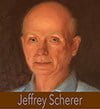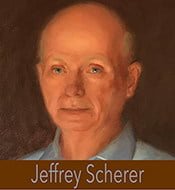
I believe in ghosts. I know it may sound a bit crazy. Every since I was a little boy, I always looked for ghosts. Some of my ghost were friendly—others very scary. But soon, at about age 6, I realized that if I confronted the ghost directly they no longer would bother me. Of course, these internal conversations were nearly always kept private. Only when I would have a bad dream and wake up did mom help me look under the bed and in the closet for the boogie-man. I never liked that term since I never met the boogie-man and couldn’t, fairly, say if a) it was a man or b) it was boogie-eligible.
Gradually, my ghosts became helpful. They would serve as surrogate listeners when I was working alone in the service station or on the assembly line welding refrigerator linings. Of course, after I began to read about voices that some folks had in their heads, I worried that I too might be crazy. The more I read about Jungian and Freudian psychoanalysis the more I understood that what I was experiencing was healthy. This enabled me to comfortably let the ghost grow in confidence and help me in all aspects of growing up. As with most youngsters trying to find their identity and fit in growing up was complicated. Nothing especially unnatural about my becoming an adult—except of course my friendly ghosts.
By the time college time came, I was comfortable in my own skin and ready to tackle the next step in becoming an adult. Although many will argue that I am still, at 69 years old, working on becoming an adult. My wife claims I am teenager trapped in an adult body.

Photo of Mort from his daughter’s website
At the beginning of my sophomore year in 1967, I met a man that would change my life: Mort Karp. (this photo and web-link is from a blog post by his daughter). Mort was a newly hired professor at the School of Architecture at the University of Arkansas. He was from New York, studied at Pratt and was a welcome addition to the Frank Lloyd Wright obsessed faculty at the School of Architecture—headed by Fay Jones and John Williams. I am very grateful for the education I received at this land grant University—but even more grateful that the school had the foresight to hire an “outsider.” Because I was rather obsessed with becoming an architect, starting at the age of 13, I knew how to draw when I arrived at the school. What I was not good at were academics. School for me was complicated. Since I worked after school and on Saturdays at my father’s service station, I was always trying to do my homework when I was tired. Luckily, I had good work-ethic genes and could put in very long days. But my grades suffered and I had to take remedial math and English to qualify for admission to the School of Architecture. So, it is easy to imagine that this smart, funny and self-deprecating man from New York (Jewish and atheist) was a force to be reckoned with. For some odd reason, Mort took me (and a few others) under his wing. Despite my early difficulties with academics (not with design studio) he bent the rules and allowed me to be part of an honors class. It was here that my brain switched on and was finally. getting in sync with my drawing and design self.
Mort taught me how to read, think critically and question everything. He especially turned me onto philosophy. In particular, I started on my life-long path of reading and trying to understand Ludwig Wittgenstein’s philosophy. For millennia philosopher’s have attempted to find the truth. Wittgenstein’s life-long search is one of the most difficult to understand (at least for me). Yet it is because of the intense bewilderment of his quest for truth and clarity in language, that I like it. By working through the complexity of his texts, I can, briefly, glimpse those childhood ghosts hovering and protecting the voids inside. These brief interludes of transparency are exactly the points where I make intellectual progress.
By embracing, from an early age, those ghosts I am now, as an adult, able to lift the veils and look carefully at my shortcomings and desires—intertwined with my sexuated corpus. Wittgenstein gives me courage, through self revelation, to discover the limits of temptation and desire. This energy is now being poured into my art making—since I am now comfortable with “allowing oneself to be divested of the contented authority of pre-established truths.” — quote from Alain Badiou’s Wittgenstein’s Antiphilosophy.
The flame ignited by Mort’s pedagogy, passion and persistence with me continues to this day. My ghosts are happy.


Recent Comments